Which NBA Eastern Conference teams did best and worst during the offseason?
With all the major free agents having found homes and teams now busy preparing for the start of training camp next month, it's time to hand out grades for how teams managed to reshape their rosters. I'll start with the Eastern Conference, which featured both straight A's I handed out but also one of two D grades. (Western Conference grades will be unveiled Tuesday.)
East teams were busy, handing out six of the eight biggest contracts signed in free agency. However, it's worth remembering John Wooden's maxim to never mistake activity for achievement. Not all of those deals look like good values.
These grades are on a curve with B as the most common outcome and reflect the opportunities teams had to improve their rosters via the draft and cap space to use in free agency. We're interested not only in which teams have helped their chances for 2021-22 but how well they took advantage of their flexibility to do so.
Keeping that framework in mind, let's get to the grades, which are in alphabetical order.
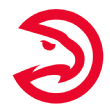 Atlanta Hawks: A
Atlanta Hawks: A
Although it was a relatively quiet offseason for the Hawks, I liked the way they tweaked their bench after last season's unexpected run to the Eastern Conference finals. Atlanta swapped little-used Kris Dunn and Bruno Fernando for top-tier backup point guard Delon Wright and added Gorgui Dieng on a one-year, $4 million deal to fill in at backup center while Onyeka Okongwu recovers from shoulder surgery.
The Hawks also ensured their core stays together by re-signing restricted free agent John Collins to a five-year, $125 million deal without much drama and extending Trae Young as a designated player. Add in a long-term contract for coach Nate McMillan, removing his interim tag, and Atlanta wisely rewarded key contributors to the playoff run.
 Boston Celtics: B+
Boston Celtics: B+
Given limited flexibility entering the offseason, new Celtics president of basketball operations Brad Stevens did well to reshuffle the lineup around All-Stars Jaylen Brown and Jayson Tatum. That started with an early trade sending Kemba Walker to the Oklahoma City Thunder for Al Horford. Boston filled the void at point guard with a one-year, $5.9 million deal for Dennis Schroder.
I was more surprised the Celtics bet on a bounceback season for Josh Richardson, taking him into their remaining trade exception and extending his contract. But Boston was able to generate another big exception by signing-and-trading Evan Fournier to the New York Knicks and would no longer have had cap space next summer after extending potential starters Marcus Smart and Robert Williams.
 Brooklyn Nets: A-
Brooklyn Nets: A-
Barring major defections, the Nets would have entered 2021-22 as title favorites no matter what because of their trio of Kevin Durant, James Harden and Kyrie Irving. Brooklyn did well to bring back starting center Blake Griffin at the veteran's minimum and key reserve Bruce Brown Jr. for his $4.7 million qualifying offer, then flipped Landry Shamet into a first-round pick and a potentially useful reserve in Jevon Carter.
The most interesting Nets move was using their $5.9 million taxpayer midlevel exception on Patty Mills versus a replacement for Jeff Green in the frontcourt, instead adding James Johnson at the veteran's minimum. Mills' shooting and playmaking should help Brooklyn during the regular season, but his role in the deep rounds of the playoffs is more uncertain.
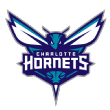 Charlotte Hornets: C+
Charlotte Hornets: C+
Adding Kelly Oubre Jr. on a two-year, $24.6 million deal ($17 million guaranteed) offered more upside to what had been a conservative offseason for the Hornets. They used the rest of their cap space to add veterans Mason Plumlee (via a trade that also allowed them to move up in the second round) and Ish Smith instead of aggressively pursuing a bigger upgrade at center.
Atypically, Charlotte gave up a future first-rounder to add a second one this year (taking center Kai Jones after previously drafting James Bouknight in the lottery) but was able to replace it with one from a sign-and-trade sending restricted free agent Devonte' Graham to the New Orleans Pelicans.
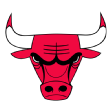 Chicago Bulls: C+
Chicago Bulls: C+
I liked much of Chicago's offseason. I think a four-year, $82.5 million deal for restricted free agent Lonzo Ball (via sign-and-trade) will age well as Ball enters his prime, and the Bulls got a protected first-round pick and a lotto ticket in Derrick Jones Jr. for Lauri Markkanen's rights in another sign-and-trade.
The third Chicago sign-and-trade, adding DeMar DeRozan on a three-year, $82 million deal, hurts the Bulls' overall grade. Not only did they pay DeRozan far more than anyone else could have offered, they gave up a first-round pick and valuable reserve Thaddeus Young for the privilege.
Chicago needs to make the playoffs to justify dealing for veterans DeRozan and Nikola Vucevic while overcoming what projects as one of the league's weakest defenses to do it.
 Cleveland Cavaliers: D
Cleveland Cavaliers: D
I get the idea that Cleveland has to overpay free agents, helping explain a five-year, $100 million deal to re-sign center Jarrett Allen and a four-year, $67 million deal for Lauri Markkanen (approximately $55 million guaranteed) via sign-and-trade. Still, that being the case, why would the Cavaliers sell so low on one of the league's better value contracts for Larry Nance Jr. in return for Markkanen?
Unless No. 3 overall pick Evan Mobley is immediately an above-average starter, adding Markkanen and veteran point guard Ricky Rubio doesn't seem to move the needle on Cleveland competing for a spot in the play-in tournament. And if the Cavaliers extend starting guards Collin Sexton (eligible this offseason) and Darius Garland (next summer), an unproven core could become surprisingly expensive.
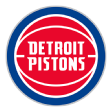 Detroit Pistons: B-
Detroit Pistons: B-
Remember that these grades are relative to what resources the team has entering the offseason, so the Pistons don't get extra credit for landing the No. 1 overall pick and drafting Cade Cunningham. Aside from that, their big move was dealing Mason Plumlee to create cap space to sign Kelly Olynyk to a three-year, $37 million deal with $28 million guaranteed, according to my ESPN colleague Bobby Marks.
If Detroit gets the Olynyk who dominated down the stretch with the Houston Rockets, that could be a strong value, though Olynyk was less effective with the Miami Heat. The Pistons struck a team-friendly deal with restricted free agent Hamidou Diallo, back on a two-year deal with a team option on the second season.
 Indiana Pacers: B-
Indiana Pacers: B-
No move the Pacers made this offseason was bigger than replacing first-year coach Nate Bjorkgren with veteran Rick Carlisle, who brings championship pedigree back to Indiana in his second stint at the helm. The best addition to Carlisle's roster will be a healthy T.J. Warren after he missed all but four games last season following foot surgery.
Elsewhere, the Pacers tweaked the bench, replacing Doug McDermott with a two-year, $10 million deal for wing Torrey Craig after McDermott got a big payday from the San Antonio Spurs. Indiana did retain backup point guard T.J. McConnell on a four-year deal that guarantees him $29.3 million.
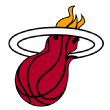 Miami Heat: B+
Miami Heat: B+
Nobody did more to help their chances of winning in 2021-22 than the Heat, who added the top free agent to change teams in Kyle Lowry (via sign-and-trade) and saw P.J. Tucker switch sides in the Miami-Milwaukee rivalry after helping the Bucks to a championship.
Long term, the Heat's strategy of adding the 36-year-old Tucker and the 35-year-old Lowry, both of whom slowed considerably on offense last season, is more fraught. And a three-year extension for Butler will pay him a projected $50-plus million in 2025-26, when he'll be age 36. However, under Pat Riley, Miami has successfully prioritized winning now and figuring out the future down the road.
 Milwaukee Bucks: B
Milwaukee Bucks: B
Deciding not to bring back P.J. Tucker was an interesting gamble for the Bucks, who could have re-signed him at the cost of a larger luxury-tax bill. Tucker's defense was critical for Milwaukee in the postseason, but his limited offense cramped the floor at times and he wouldn't have likely played as much had starting guard Donte DiVincenzo been healthy.
The Bucks did bring back Finals hero Bobby Portis (using non-Bird rights) and old friend George Hill on a two-year, $8 million deal. Hill's return and the addition of Grayson Allen should give Milwaukee more shooting but less size than we saw during the Bucks' title run.
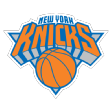 New York Knicks: B+
New York Knicks: B+
Instead of standing pat after a surprise return to the playoffs, the Knicks were able to upgrade their backcourt by bringing Kemba Walker home on a bargain two-year, $18 million deal and signing Evan Fournier to a four-year, $73 million contract with $54 million guaranteed.
I do think New York's offseason benefited a bit from the way contracts to re-sign reserves Alec Burks, Nerlens Noel and Derrick Rose looked worse initially than they really were due to incentives and team options.
Factoring those out, the Knicks still paid lavishly for Rose ($28 million over the next two years) and Noel ($18 million plus incentives over the same span) given their limited value when they previously hit free agency.
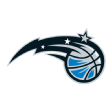 Orlando Magic: B+
Orlando Magic: B+
This grade mostly reflects Orlando adding a pair of my favorite prospects in Jalen Suggs with the No. 5 overall pick and Franz Wagner at No. 8. Aside from hiring Jamahl Mosley as head coach, the rest of the Magic's offseason was predictably uninteresting.
A one-year, $5 million deal for center Robin Lopez was good value but a curious fit given Orlando is developing Wendell Carter Jr. and Mo Bamba at the position. That was the Magic's only signing for more than the minimum as they await additional cap flexibility in future seasons.
 Philadelphia 76ers: B+
Philadelphia 76ers: B+
So far, I've liked the Sixers' offseason. They brought back starter Danny Green on a contract that guarantees him just $10 million for one year and also got reasonable value in free agency with reserves Furkan Korkmaz (re-signed for three years and $15 million) and Georges Niang (two years, $7 million). Adding Andre Drummond for the veteran's minimum to back up Joel Embiid was an easy call given the price.
Of course, the biggest decision for Philadelphia remains a possible Ben Simmons trade. The decision on whether to trade Simmons now and what to prioritize in return will end up far more important in the long run than any move the 76ers have made to date.
 Toronto Raptors: D+
Toronto Raptors: D+
Although I think the Raptors' odds of returning to the playoffs next season are underrated, that's because of the talent on hand and a return to Canada rather than their offseason moves. Toronto's decision to wait on a Lowry trade at the deadline landed 2020 first-round pick Precious Achiuwa from the Heat, but at the cost of taking on Goran Dragic at $19.4 million. We'll see whether the Raptors can get something of value for Dragic at the deadline.
Instead of using cap space, Toronto stayed over the cap and re-signed other free agents at big numbers. Restricted free agent Gary Trent Jr. got $52 million over three seasons and a player option that could see him hit unrestricted free agency at age 24, while the Raptors paid lavishly to bring back Khem Birch (three years, $20 million) after a strong post-buyout run. In the long term, deciding to take Scottie Barnes No. 4 overall ahead of Suggs might dominate our assessment of Toronto's offseason.
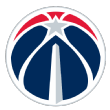 Washington Wizards: A
Washington Wizards: A
Conversely, the Wizards had my favorite offseason of any team without dramatically changing their 2021-22 outlook. Washington still figures to be in the play-in mix after trading Russell Westbrook for three rotation plays (Kentavious Caldwell-Pope, Montrezl Harrell and Kyle Kuzma) while landing Spencer Dinwiddie (on a three-year contract with $45 million guaranteed) and Aaron Holiday using Westbrook as matching salary.
Looking forward, the Wizards' cap sheet is in much better shape with Harrell in the final season of his contract and Caldwell-Pope's 2022-23 salary just $4.9 million guaranteed. And the 28-year-old Dinwiddie is a better fit for Washington going forward than Westbrook, matching up age-wise with All-Star Bradley Beal (also 28) as the Wizards look to retain Beal long-term.
